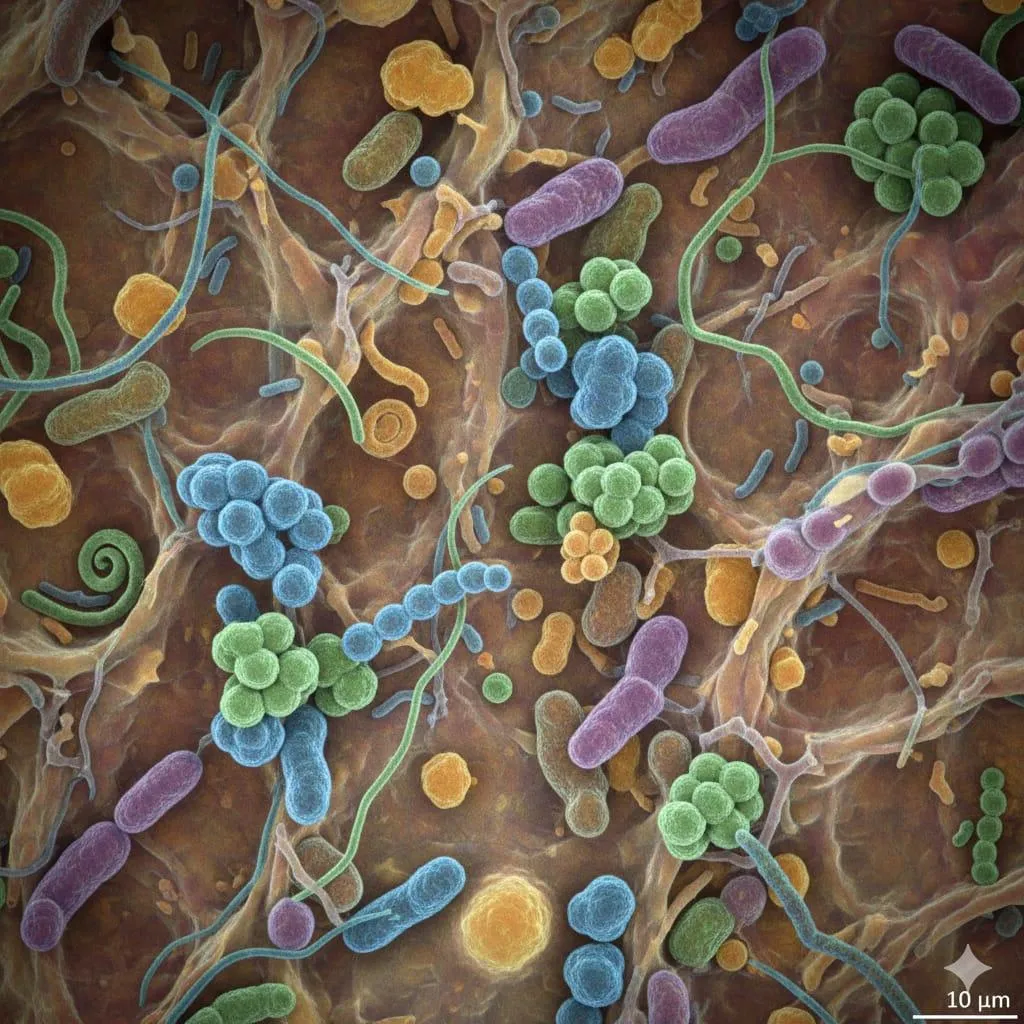
Gut Health
The Biggest Mistakes People Make With Gut Health — and How to Fix Them
Let’s break down the eight most common gut health mistakes — and how you can finally start healing your digestive system.
1. Trying to Fix Your Gut With Fiber
Most people believe fiber heals the gut — but if your gut is damaged, fiber can make it worse.
Fiber (also called “prebiotics”) is supposed to feed your gut’s healthy microbes, but it can just as easily feed the wrong ones.
If your gut lining is inflamed, eating a lot of fiber is like rubbing sandpaper on an open wound — it causes gas, bloating, and more inflammation.
💡 Try This Instead:
Focus on cooked or steamed vegetables — easier to digest than raw fiber.
Use fermented foods like sauerkraut or kimchi to support microbes naturally.
If inflammation is high, try a carnivore-style reset — eliminating fiber temporarily to let the gut heal.
Add L-glutamine and zinc carnosine, two nutrients proven to repair the intestinal lining.
Fast regularly — intermittent fasting or occasional prolonged fasting gives your digestive system time to rest and heal.
Include butyrate (found in butter) to nourish colon cells and support healthy microbes.
2. Relying on Typical Probiotics or Store Yogurt
Most commercial probiotics are too weak to make a real impact.
And most yogurt brands? Low-fat, sugar-loaded, and full of additives.
Instead, go for plain, grass-fed, organic yogurt or kefir, which contain more potent beneficial bacteria.
Even better, consider making L. reuteri yogurt, a powerful probiotic developed by Dr. William Davis that helps reduce SIBO (small intestinal bacterial overgrowth), improves mood, and even boosts oxytocin — your “feel-good” hormone.
3. Overdoing Colon Cleanses
Colon cleanses sound good in theory — “flush out toxins and feel clean” — but in reality, they wipe out your good bacteria along with the bad.
That often leads to constipation and imbalance.
The truth is, your liver and diet are what detoxify you naturally.
Nutrient-rich, unprocessed foods help your body’s built-in detox systems work the way they’re supposed to.
4. Overusing Antibiotics
Antibiotics save lives — but they also destroy your microbiome.
And no, it never fully “goes back to normal.”
Antibiotics kill both good and bad bacteria, leaving your gut ecosystem weaker and more vulnerable.
When necessary, take them — but also rebuild with probiotics and nutrient-dense foods afterward.
Avoid using antibiotics for viral infections (they don’t work for those) and never take them repeatedly without medical necessity.
5. Using Antacids for Acid Reflux
Most people think acid reflux means too much acid, but it’s usually not enough.
Low stomach acid weakens the valve at the top of your stomach, letting acid creep up where it doesn’t belong.
Suppressing acid further with antacids just makes digestion worse.
Healthy stomach acid (pH 1–3) is essential for:
Breaking down proteins
Absorbing minerals
Killing harmful microbes
When acid is too low, food sits undigested and ferments in the small intestine — leading to bloating, constipation, and diarrhea.
🧠 Pro Tip:
Use betaine hydrochloride (with guidance) to restore acid balance and improve digestion naturally.
6. Following a Low-Fat Diet
Fat is your gallbladder’s “on switch.”
Without enough dietary fat, bile production drops — and bile is essential for:
Breaking down fat-soluble vitamins
Killing harmful bacteria in the small intestine
Preventing SIBO
Low-fat diets cause constipation, bloating, and nutrient deficiencies.
Healthy fats like olive oil, butter, tallow, and coconut oil keep your digestive system strong and balanced.
7. Believing in the “Balanced Diet” Myth
“Eat a little of everything,” they say — but that often means too many carbs.
High-carb diets feed the bad bacteria, leading to fermentation and gas.
Cutting carbs from 60% down to 10% of your intake can dramatically improve digestion and gut comfort.
Less fermentation = less bloating = more energy.
8. Superfood Smoothies Gone Wrong
Kale, spinach, and berry smoothies might look healthy — but for many, they cause instant bloating.
Why? Fiber overload.
Raw greens and fruit fibers overwhelm a sensitive small intestine.
🥩 The Better Option:
“Superfood” doesn’t have to mean green sludge.
For gut healing, red meat (rich in amino acids, zinc, and B vitamins) often does far more good than kale ever could.
Bonus Gut Health Hacks
Fasting: Skip the snacks — constant eating keeps your digestive system inflamed.
Bile Salts: Support gallbladder function and kill off unwanted bacteria.
Sunlight: Infrared and UV rays help balance your microbiome, boost melatonin, and improve sleep.
Polyphenols: Found in dark chocolate, coffee, avocado, and olive oil — they feed your good microbes.
Fermented Liquids: Sauerkraut juice (not the fiber) is a probiotic powerhouse.
The Takeaway
Healing your gut isn’t about fiber, powders, or “superfood” shakes.
It’s about restoring the natural processes your body was designed to use — real food, healthy fats, fasting, sunlight, and balance.
Your gut doesn’t need more stuff.
It needs less irritation, more rest, and the right kind of nourishment.
Once you fix that, everything else — skin, mood, energy, even your immune system — starts to fall back into place.
